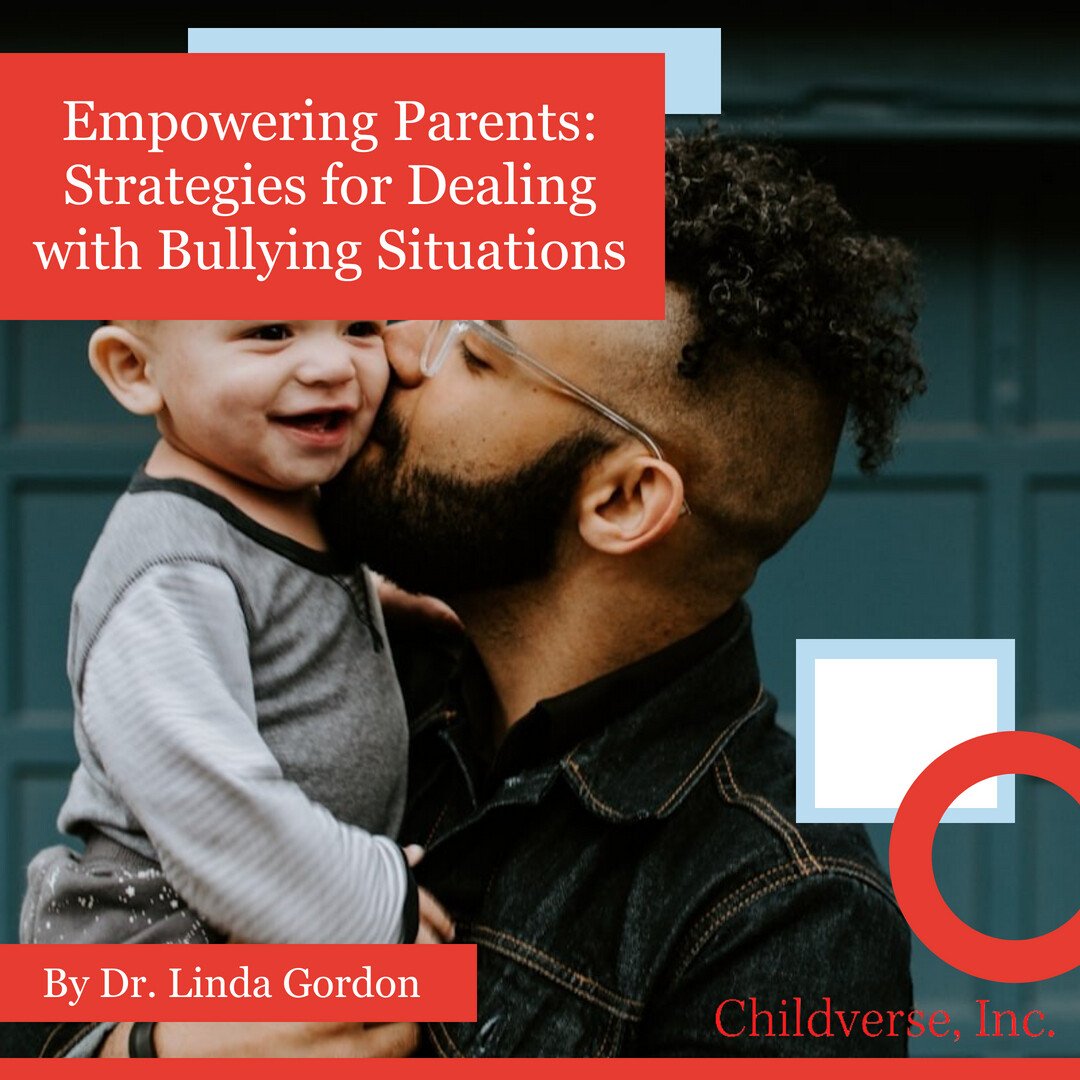Empowering Parents: Strategies for Dealing with Bullying Situations
Bullying is a pervasive issue that can have long-lasting effects on children's mental health and well-being. As parents, it's crucial to equip ourselves with effective strategies for dealing with bullying situations. By taking proactive steps and empowering ourselves with knowledge, we can better support our children and help them navigate through these challenging experiences. In this blog post, we'll explore strategies for identifying bullying, communicating with your child, and taking action to address bullying situations effectively.
Understanding Bullying:
Before delving into strategies, it's essential to understand what constitutes bullying. Bullying involves repeated aggressive behavior with an intent to harm, imbalance of power, and often occurs over an extended period. This behavior can take various forms, including physical, verbal, social, and cyberbullying. By familiarizing ourselves with the different types of bullying, we can better recognize when our child may be experiencing it.
Signs Your Child May Be Bullied:
Recognizing the signs that your child may be experiencing bullying is crucial. Some common indicators include:
Unexplained injuries or damage to belongings
Changes in behavior, such as becoming withdrawn or anxious
Avoidance of school or social situations
Decline in academic performance
Sudden loss of friends or changes in social circles
Communicating with Your Child:
Open and honest communication is key to addressing bullying situations effectively. Create a safe and supportive environment where your child feels comfortable sharing their experiences. Encourage them to talk about their day and any concerns they may have. When discussing bullying, listen attentively, validate their feelings, and reassure them that they're not alone.
Empowering Your Child:
Empower your child by teaching them strategies to handle bullying situations assertively.
Encourage them to:
Assertively communicate their boundaries and stand up for themselves
Seek help from trusted adults, such as teachers, school counselors, or parents
Practice self-care and develop coping skills to manage stress and anxiety
Build a supportive network of friends who can provide companionship and solidarity
Taking Action:
If you suspect your child is being bullied, it's essential to take action promptly. Here are steps you can take:
Document incidents: Keep a record of any bullying incidents, including dates, times, and details of what occurred.
Contact school authorities: Schedule a meeting with your child's teacher, principal, or school counselor to discuss the situation. Provide them with the documented incidents and collaborate on a plan to address the bullying.
Encourage advocacy: Empower your child to advocate for themselves by teaching them how to assertively communicate their concerns to school authorities.
Seek outside support: If the bullying persists or escalates, consider reaching out to external resources such as mental health professionals, community organizations, or legal authorities for additional support and guidance.
Talk to your child about bullying experiences. Have an open conversation and begin by asking open-ended questions.
Promoting a Culture of Kindness:
In addition to addressing individual bullying situations, it's essential to foster a culture of kindness and inclusivity within your family and community. Encourage empathy, respect, and tolerance towards others. Teach your child the importance of standing up against bullying and being an ally to those who may be targeted.
Conclusion:
Dealing with bullying situations can be challenging, but as parents, we have the power to empower ourselves and support our children effectively. By understanding the signs of bullying, communicating openly with our children, empowering them with assertiveness skills, and taking proactive action, we can create safer and more supportive environments for our children to thrive. Let's work together to empower parents and children alike in the fight against bullying. Remember, you are not alone, and together, we can make a difference.
Childverse, Inc. navigates the mental health care system for children to find you resources that help treat conditions with evidence based care & therapy. Contact our professional advisors today at (256) 809-8328.
